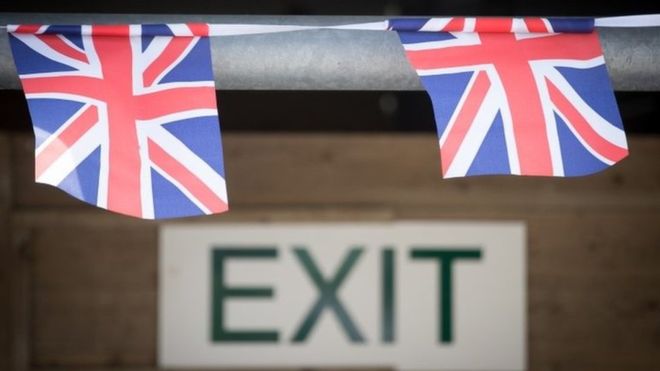British and European Union negotiators struck a deal Thursday to split Britain from the European Union, raising the prospect that the country could be out of the bloc by the end of October.
Negotiators working through the night in Brussels agreed on the draft Thursday morning after Prime Minister Boris Johnson signed on despite lingering questions about the warring factions in London. The agreement will still need approval by European leaders and the British Parliament.
“We’ve got a great new deal that takes back control — now Parliament should get Brexit done on Saturday so we can move on to other priorities like the cost of living, the NHS, violent crime and our environment,” Johnson tweeted, referring to the National Health Service.
British lawmakers passed a law requiring Johnson to ask to delay Brexit past the Oct. 31 deadline if a deal to ease the exit isn’t in place by Saturday.
“Where there is a will, there is a #deal – we have one! It’s a fair and balanced agreement for the EU and the UK and it is testament to our commitment to find solutions,” wrote European Commission President Jean-Claude Juncker on Twitter.
Earlier in the day, the leader of the Northern Ireland Democratic Unionist Party, Arlene Foster, said she could not back the current proposal.
Johnson chose to push forward despite failing to get the party on board, raising the prospect that it could quickly fall apart in London, as a previous deal did under Johnson’s predecessor, Theresa May.
If there is a vote on the deal in Parliament on Saturday, Johnson will face a huge showdown. Since becoming prime minister, Johnson’s working majority has gone from one to minus 43, meaning he will need the support of other parties to get the deal approved.
“As things stand, we could not support what is being suggested,” said Foster, once a key member of Johnson’s dwindling coalition, in a statement before the deal was announced.
The statement still stands, spokesman for the party said.
Jeremy Corbyn, the leader of the Labour Party, said that from what was known, the deal agreed on Thursday was an “even worse deal” than May’s. He said that the “best way to get Brexit sorted is to give the people the final say in a public vote.”
Under the deal, Britain would depart the European Union but would continue to apply E.U. rules until the end of 2020 in a transition period that would soften the split. E.U. and British negotiators would try to hammer out a trade deal and other elements of their future relationship in the meantime. The transition period could be extended up to two years if both sides agree.
According to people briefed on the talks, Johnson was willing to make a slew of concessions in the interest of fulfilling his promise to get Britain out of the European Union this month.
The trickiest part of the talks always centered on the border between the Republic of Ireland, which remains in the European Union, and Northern Ireland, which is leaving the E.U. along with the rest of the United Kingdom.

 Business1 week ago
Business1 week ago
 Football1 week ago
Football1 week ago
 Entertainment6 days ago
Entertainment6 days ago
 Latest1 week ago
Latest1 week ago
 Entertainment3 days ago
Entertainment3 days ago
 Latest1 week ago
Latest1 week ago
 Business1 week ago
Business1 week ago
 Comments and Issues6 days ago
Comments and Issues6 days ago

